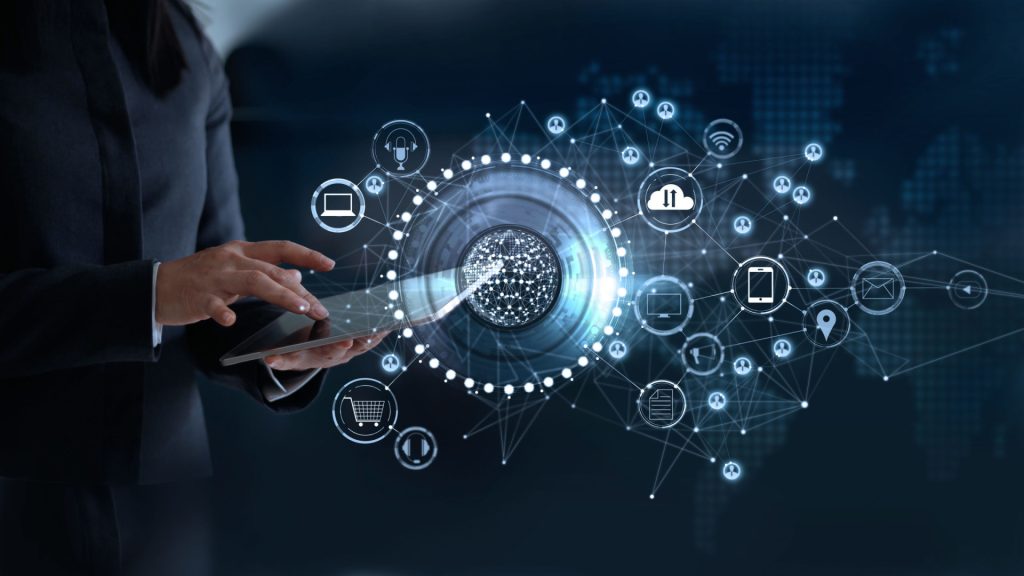
In an era defined by rapid technological advancements, the realm of education is undergoing a profound transformation. The rise of digital learning has sparked a revolution that is reshaping how we acquire knowledge, share information, and engage with educational content. As we navigate this exciting journey into the future of education, it’s crucial to understand the implications, opportunities, and challenges presented by the digital learning revolution.
The Evolution of Education: From Classroom to Digital Realm
Traditional education has long been associated with physical classrooms, textbooks, and face-to-face interactions between teachers and students. However, the advent of the digital age has ushered in a new paradigm. Digital learning leverages technology to transcend the limitations of physical boundaries, enabling students to access educational content from virtually anywhere in the world. This revolution has democratized education, making learning opportunities accessible to a broader and more diverse audience.
Embracing Flexibility and Accessibility
One of the cornerstones of the digital learning revolution is its emphasis on flexibility and accessibility. Students are no longer confined by rigid schedules or geographical constraints. Online courses, virtual classrooms, and e-learning platforms provide individuals with the freedom to learn at their own pace and on their own terms. Whether a student is juggling work, family commitments, or other responsibilities, digital learning accommodates diverse lifestyles.
Moreover, digital learning has paved the way for lifelong learning. The ease of access to educational resources encourages individuals to continuously update their skills and knowledge, keeping up with the rapidly changing demands of the modern job market. This shift aligns with the concept of a knowledge-based society, where the pursuit of learning becomes a lifelong journey rather than a finite phase.
Personalization and Adaptive Learning
Another remarkable aspect of the digital learning revolution is its ability to personalize the learning experience. Artificial intelligence and data analytics are harnessed to understand individual learning styles, preferences, and strengths. This information is then used to tailor educational content and experiences to each learner’s unique needs. Adaptive learning algorithms adjust the difficulty and pace of lessons, ensuring that students remain engaged and challenged without feeling overwhelmed.
Imagine a scenario where a student struggling with a particular concept receives targeted resources and additional practice, while a student who grasps the material quickly is encouraged to explore more advanced topics and students can avail the Essay Writing Services UK. This individualized approach enhances comprehension and retention, ultimately leading to a deeper understanding of the subject matter.
Global Collaboration and Cultural Exchange
The digital learning revolution doesn’t just break down physical barriers; it also fosters global collaboration and cultural exchange. Online platforms connect students and educators from different corners of the world, facilitating the exchange of ideas, perspectives, and experiences. This interconnectedness promotes cultural understanding, tolerance, and a broader worldview.
Collaborative projects that transcend borders are now commonplace. Students can collaborate on assignments, research projects, and discussions with peers who bring diverse viewpoints to the table. This not only enriches the learning experience but also prepares students for a globalized workforce where cross-cultural communication and collaboration are essential skills.
Challenges and Considerations
While the digital learning revolution holds immense promise, it’s not without challenges. The digital divide remains a significant concern, as access to technology and reliable internet connections varies across regions and socio-economic backgrounds. Ensuring equitable access to digital learning resources is essential to prevent further marginalization of underserved communities.
Additionally, the absence of face-to-face interactions in digital learning environments can impact social and interpersonal skills development. Building relationships with peers and mentors, engaging in classroom discussions, and participating in extracurricular activities contribute to holistic growth. Striking a balance between the benefits of technology and the importance of human interaction is a challenge that educators and educational institutions must address.
In Conclusion
The digital learning revolution is reshaping education as we know it, offering unprecedented opportunities for accessibility, personalization, and global collaboration. By embracing technology, educators and learners alike are navigating uncharted territories in pursuit of knowledge and skills. However, this transformation also calls for thoughtful consideration of challenges and ethical implications.
As we continue to navigate this revolution, it’s essential to strike a balance between the digital and the human. The fusion of technology with effective pedagogy, mentorship, and interpersonal connections will pave the way for a future where education is not confined by physical boundaries, but enriched by the limitless possibilities of the digital realm. Are you seeking assistance with coursework writing services to enhance your digital learning experience? Feel free to explore reputable providers to support your educational journey.